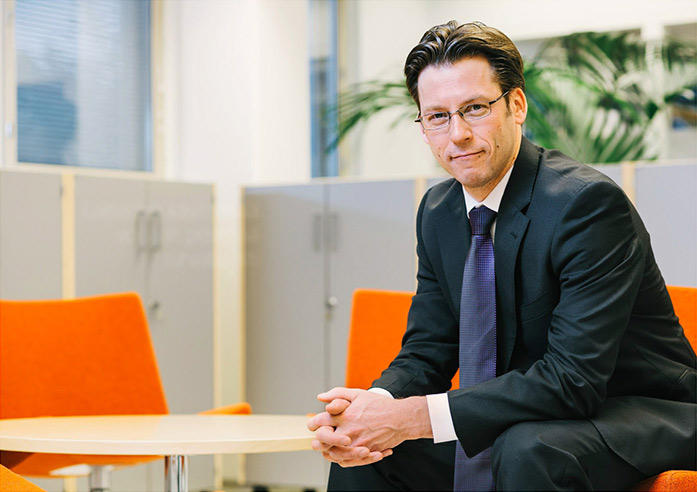Director general of STUK, Petteri Tiippana: Plant service life can be extended safely
12.7.2017
Efforts to extend the operation of nuclear power plants beyond their originally planned lifespan are taken not only in Finland, but also elsewhere in the world. However, the ageing of the plants brings new types of tasks for both the licensee and the supervisory authority, says Mr. Petteri Tiippana, Director General of STUK.
– In Europe this trend has raised questions as current knowledge indicates that a lifespan of 50–60 years can be justified in terms of economy and safety, explains Petteri Tiippana, STUK's Director General.
The Finnish nuclear power plants also fall within this pan-European age frame. The currently valid operating licences of the Loviisa 1 and 2 units run until the units are 50 years old in 2027 and 2030, respectively. The new 20-year operating licence applied for the Olkiluoto 1 and 2 units would see the plants reach an age of 60 years.

"Significance of research has increased"
The plants' own assessments and control are nowadays supported by international peer reviews designed to identify and manage ageing-induced phenomena.The peer review carried out by the World Association of Nuclear Operators (WANO) in the autumn and the peer review conducted in March under the coordination of the International Atomic Energy Agency IAEA are examples of this in Olkiluoto.
According to Mr. Tiippana, the role of research and product development has also increased in significance.
– New technologies open up new possibilities for the evaluation of the condition of concrete and steel structures, for example.
The technical ageing of the systems increases the work load of the power companies and the authorities ever more frequently.
– The new digital automation systems that have replaced analogue systems have proven to have shorter lifespans. This means the systems need to be replaced more often than before.
Ageing also involves an organisational aspect: a long operational service life of the plants may cause difficulties in passing understanding about the conditions of the equipment and structures to new generations.
– The nuclear sector has good systems in place for gathering information – particularly in Finland – but the utilisation of that information is not yet on an adequate level. The possibilities offered by digitalisation, for example, have so far not been studied very extensively.
Good reputation in the world
Mr. Tiippana says that Finnish nuclear power competence is acknowledged in the world.– We must be aware of the pitfalls of pride, however, as they are particularly dangerous in this industry. Nuclear power expertise is like top-level sports, where one needs to continuously take efforts to stay in top condition.
Tiippana has concerns about the change in working culture with the younger generation favouring short-term employment contracts rather than committing to the same organisation over the long term. This situation introduces a new risk to the industry.
– The overall competence in the industry and the understanding of nuclear safety may be jeopardised, unless we can come up with new ways to ensure competence management, Mr. Tiippana worries.
Continuous improvement required for operating licence
According to Mr. Tiippana, continuous development of competence as well as improvement and measurement of safety, and safety research are pre-conditions for the fixed-term operating licences.– When operating licences are renewed, competence and the safety of the plant must be demonstrated at intervals of ten years. The process is just as rigorous as when applying for an operating licence for a new plant, Mr. Tiippana points out.
Increases in output and plant modifications are also important projects in relation to the maintenance and development of competence. The operating organisations at Finnish plants are considerably smaller than what is normal at other plants in the world. However, according to Mr. Tiippana good results are achieved by the organisations in terms of operation and safety.
– This is a reflection of safety and focusing on the right questions. The annual outages and their efficient and swift execution by TVO, for example, demonstrate a unique level of expertise.
Photo: STUK
Share